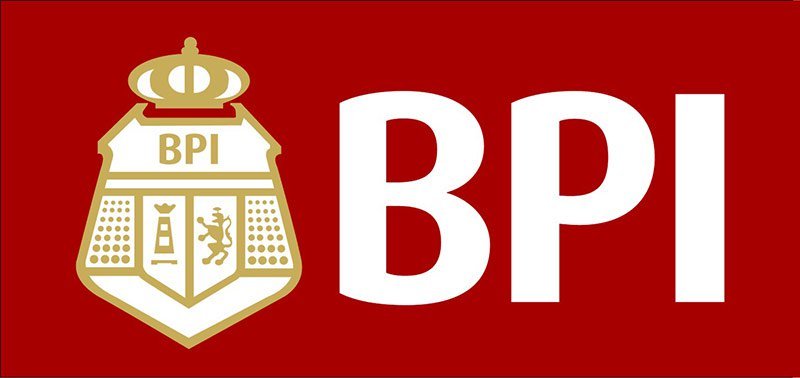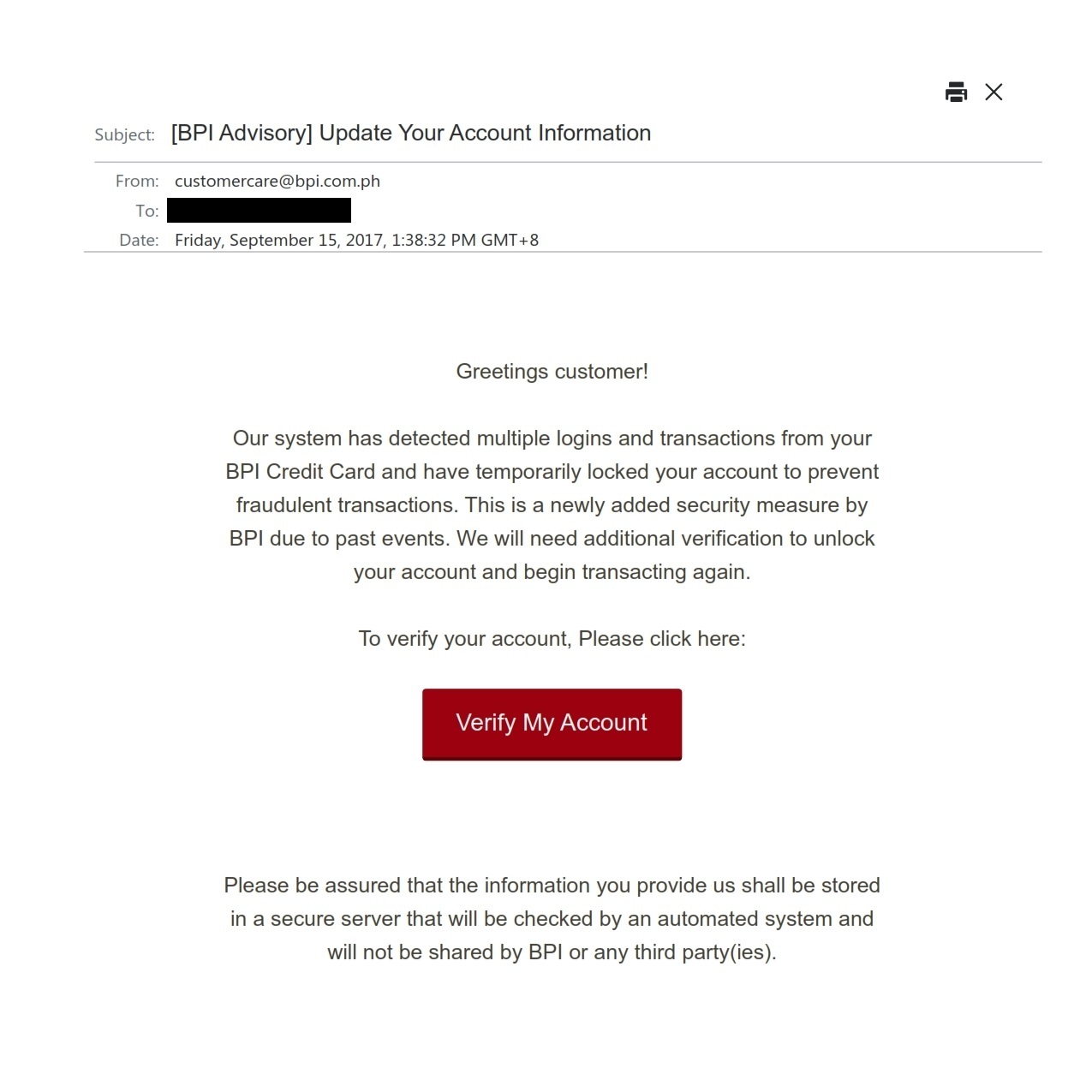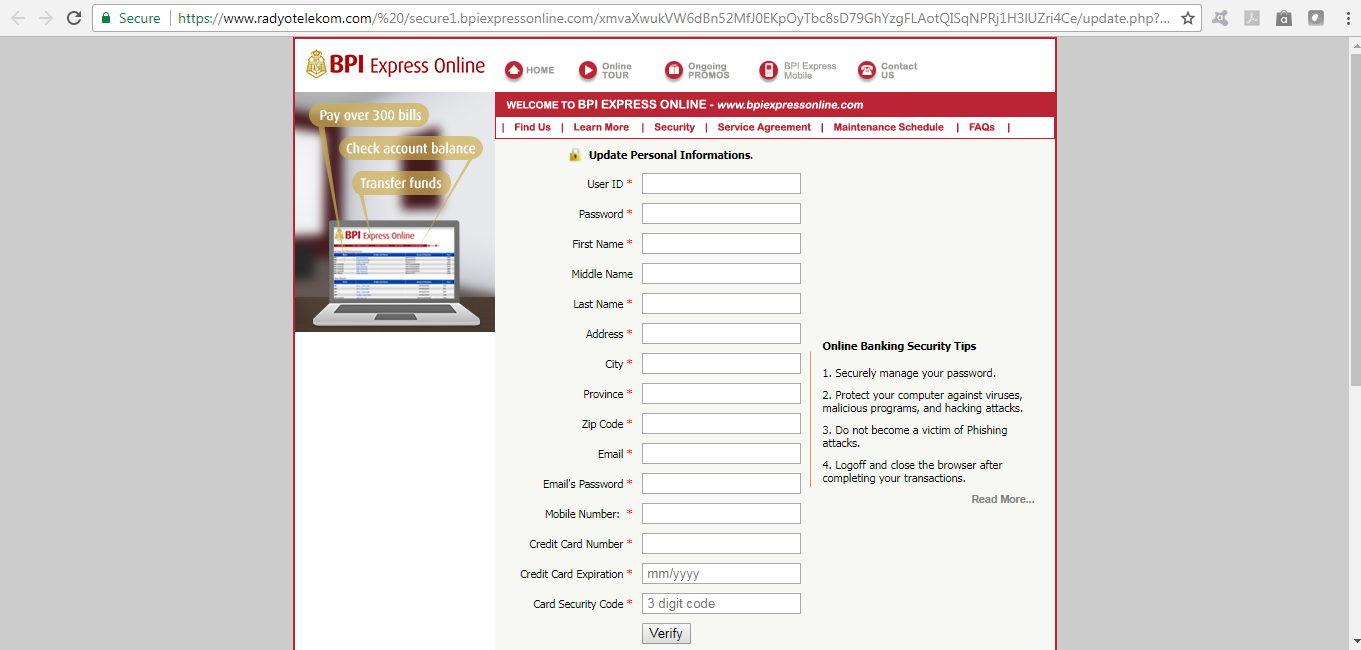Beware Of BPI Phishing Scams!

Have you ever received an e-mail from BPI telling you that there are suspicious activities that's being conducted in your account? And that you need to 'secure' it by updating your private information?
I hope you didn't fall for that.
Because if you do, stop whatever you are doing, call your bank, inform them of this and update your private information as soon as possible! Because you've just become a victim of a phishing scam.
If that e-mail is still sitting in your inbox, delete it.
Today, I received an e-mail just like the one I described above and decided to make a post about it to help you identify these type of fraud.
Funny because I don't even have a BPI account.
If you're a BPI account holder, then this post is definitely for you.
What Does The E-Mail Look Like
Here's the sample of the phishing e-mail I received today.

BPI Scam e-mail.
Unsuspecting victims will not immediately notice that this is a phishing scam because the e-mail domain of the sender uses BPI's domain name, '@bpi.com.ph'.
Also, the grammar and sentence construction of the e-mail looks professional. I've seen many e-mails like these and you can definitely tell that it's a scam outright because of misspellings and poor grammar. But this isn't the case. This tells me that the perpetrators are smart.
How To Identify A Bank Fraud E-Mail
If you click the Verify My Account button, you'll be redirected to a client update site.

Scam client update site.
This is definitely fake because as you can see in the screenshot below, the site is not hosted on the domain of BPI but to a certain site called radyotelekom.com.
Fake URL.
Also, most of the links in the page are not working. Some have the same links repeated all over the site. if you click these links, you'll just be redirected to the same page.
If you're not observant, you'll easily believe that this is a legitimate site. Believing that this is legitimate, you'll now enter your private details and think that you've secured your account.. Wrong! Say goodbye to your money.
This is a very clever tactic to get your private information to let the scammers get access to your bank and wipe it out instantly.
How To Avoid Being Scammed
Here are 4 tips on how not to be scammed:
As a matter of fact, BPI has already a long-standing advisory regarding this. And yet, the scam still exists.
I hope this helps. Avoid being scammed. Be informed.
P.S. E-mails like these are now rampant and not only BPI account holders are being targeted. I already received similar e-mails from Metrobank and Banco De Oro. The same modus operandi is being used. The e-mails are disguised as anti-fraud measures and will instruct you to enter personal details to get your accounts secured. BANKS WILL NEVER ASK FOR YOUR E-MAIL and ACCOUNT PASSWORDS. Be careful.
